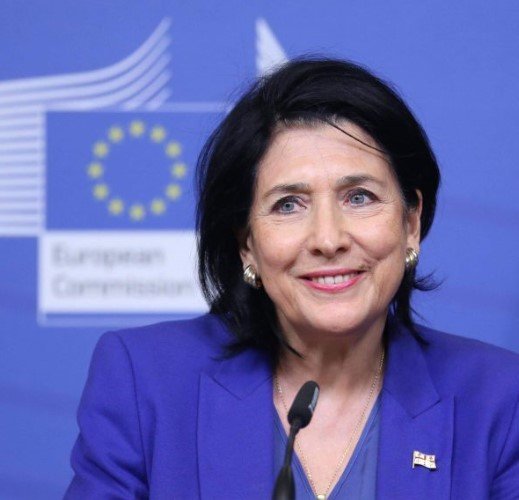In a significant political move, President Salome Zurabishvili is preparing to announce her candidate for Prime Minister, emphasizing the need to adhere to constitutional timelines. Her upcoming nomination comes at a crucial time, as the nation grapples with the complexities of democratic governance. In her recent address, she highlighted the importance of collaboration among political parties, particularly in the lead-up to elections.
A Call for Unity in Democracy
During her speech, Zurabishvili underscored the necessity of cooperation among various political factions. She stated, “Democracy requires us to consider one another,” reflecting her commitment to a pluralistic approach. This sentiment resonates deeply in a political landscape often marked by division and contention.
- Key points from her address include:
- The importance of obeying constitutional deadlines.
- Acknowledgment of the challenges faced by democratic systems.
- A commitment to considering opposition views in her nomination process.
Zurabishvili’s remarks come as a reminder that democracy is not merely about winning elections but also about fostering dialogue and understanding among differing viewpoints. Her emphasis on collaboration suggests a desire to bridge gaps between parties, which could lead to a more stable political environment.

Navigating the Challenges of Democratic Governance
The President did not shy away from discussing the difficulties inherent in executing democratic practices. She pointed out that while a single party in power may simplify governance, it often comes at the expense of broader societal interests. “It is easier for a single party to be in charge,” she noted, but stressed that a pluralistic approach ultimately benefits society as a whole.
This perspective is particularly relevant in the context of Georgia’s political climate, where the balance of power can shift dramatically. The need for a government that reflects diverse opinions and interests is crucial for maintaining public trust and ensuring effective governance.
Zurabishvili’s acknowledgment of these challenges indicates her awareness of the broader implications of her nomination. By prioritizing a candidate who can foster unity, she aims to set a tone of inclusivity and collaboration.
The Road Ahead: Expectations and Speculations
As the announcement date approaches, speculation about potential candidates is rife. Political analysts are closely watching the situation, eager to see how Zurabishvili’s choice will impact the upcoming elections. The President’s commitment to considering opposition views may lead to a candidate who can appeal to a wider audience.
The political landscape in Georgia is dynamic, and the implications of this nomination extend beyond party lines. Voters are keenly aware of the importance of leadership that can navigate the complexities of governance while remaining responsive to the needs of the populace.
In her speech, Zurabishvili hinted at forthcoming discussions, suggesting that the nomination process will be transparent and inclusive. This approach could pave the way for a more engaged electorate, fostering a sense of ownership among citizens regarding their political future.
A Pivotal Moment for Georgian Politics
As President Zurabishvili prepares to announce her Prime Minister candidate, the stakes are high. The decision will not only shape the immediate political landscape but also set the tone for future governance in Georgia. With a focus on collaboration and inclusivity, her nomination could mark a turning point in the nation’s democratic journey.
